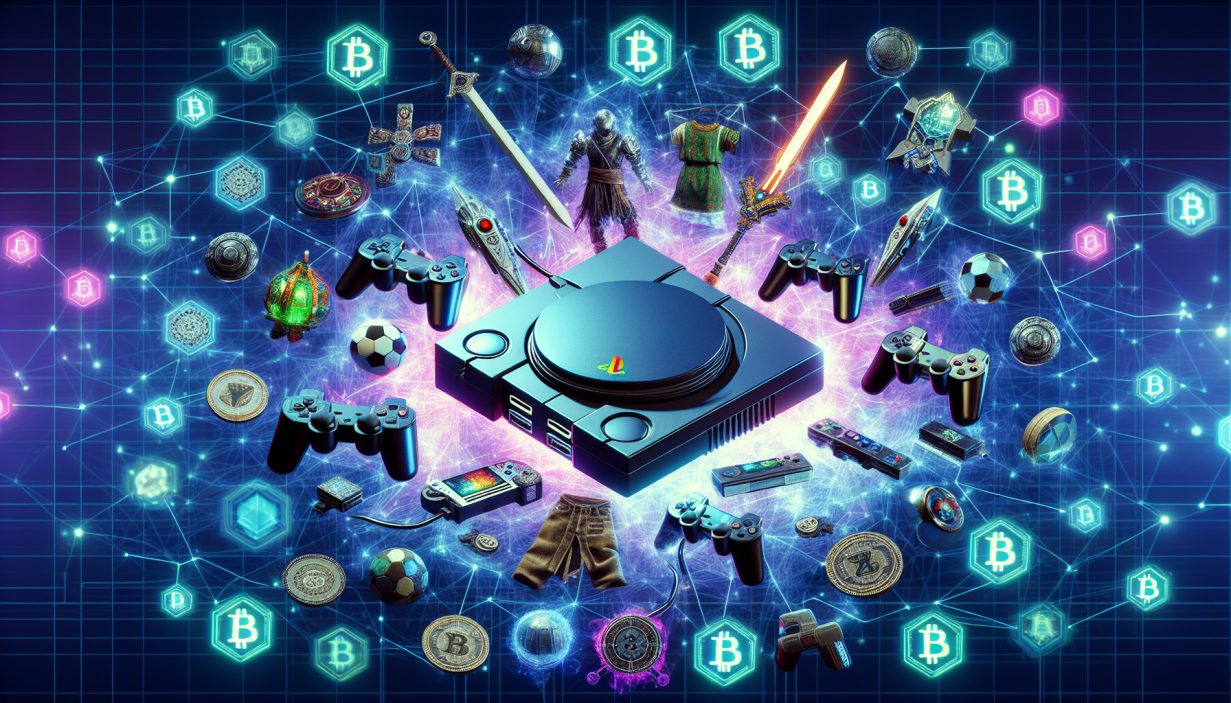Sony's NFT Game Plan
Introducing Super-Fungible Tokens in Gaming
March 13, 2024 10:54 AM
Reading time: 2 minutes, 4 seconds
TL;DR Sony's latest patent application reveals a groundbreaking concept of 'super-fungible tokens' for video games, hinting at a future where gamers could own and trade in-game assets with ease. This move could significantly alter the landscape of digital ownership in gaming, leveraging blockchain technology to empower players like never before.

In a significant development that could redefine digital ownership in the gaming world, Sony, the conglomerate behind PlayStation, has unveiled a patent application detailing 'super-fungible tokens' for video games. These tokens, according to the document filed in 2022 and published recently, aim to revolutionize how gamers interact with in-game assets by enabling their storage on a distributed ledger, facilitating transferability among players. For years, gamers have resigned themselves to the reality that money spent on in-game purchases, such as skins or battle passes, becomes a sunk cost once interest in the game wanes. Traditional gaming platforms offer no recourse for recouping investments in digital assets, rendering them worthless outside their original context.
However, the advent of blockchain technology offers a tantalizing alternative, one that Sony appears keen to explore. The patent outlines a method for associating a player's gaming assets with an 'electronic device,' generating metadata to create a super-fungible token. This token, representing a collection of NFTs, would be stored on a blockchain associated with the gaming application. While the document stops short of specifying the nature of the ledger—be it public or private—it indicates Sony's interest in integrating NFTs into its gaming ecosystem, potentially on a bespoke blockchain.
The implications of such a move by Sony are profound. Adopting NFT technology would not only signal a significant endorsement of blockchain by a major industry player but also transform the gaming experience by allowing players true ownership of their digital assets. Super-fungible tokens could encompass everything from skins to weapons, offering a new level of interoperability and value retention for in-game items.
Yet, Sony's approach to this technology remains cautious. The patent emphasizes potential, not commitment, leaving open the question of how, or even if, Sony will implement these super-fungible tokens. The choice of a public versus private blockchain, and the degree of financialization Sony is willing to embrace, remain to be seen. As the gaming community eagerly awaits further developments, the prospect of a more open and equitable digital marketplace looms on the horizon, promising to empower players like never before.
Sony's exploration of NFTs is not without precedent; a previous patent application discussed allowing players to transfer in-game assets across different titles and platforms. However, it also highlighted the technological limitations of current gaming consoles in supporting a robust NFT ecosystem. As Sony continues to navigate these challenges, the potential for a truly interoperable gaming experience remains tantalizingly within reach, awaiting the next leap forward in digital entertainment technology.



